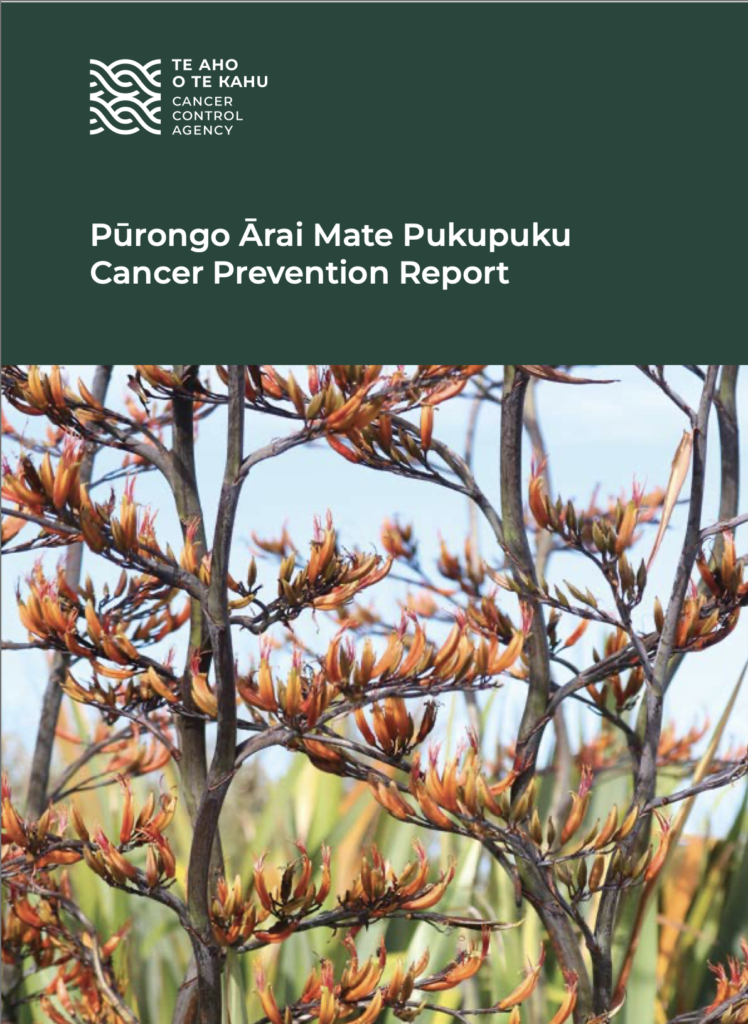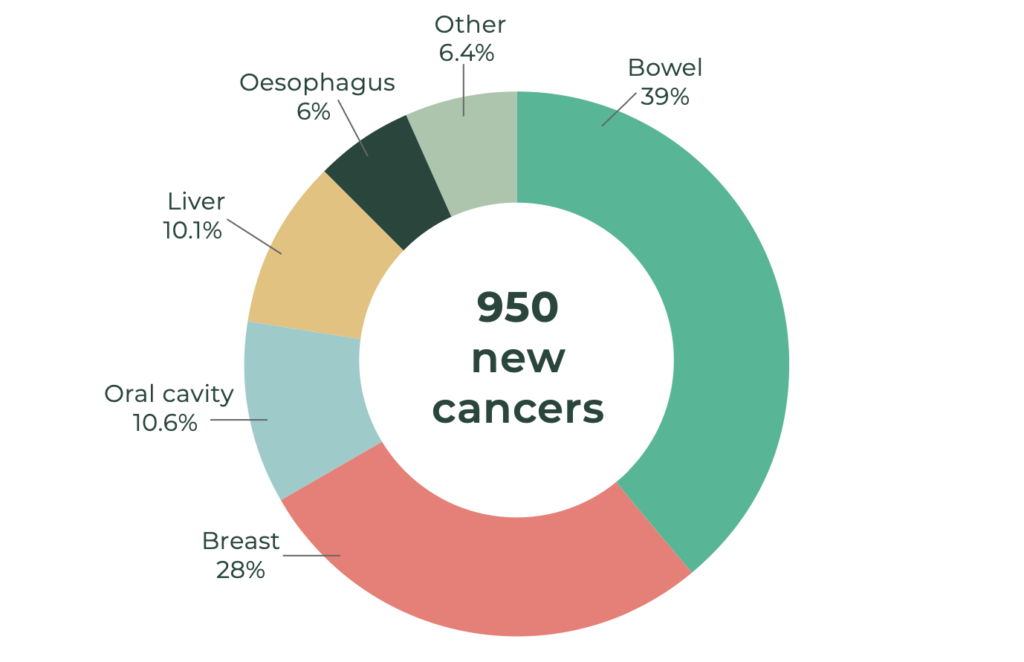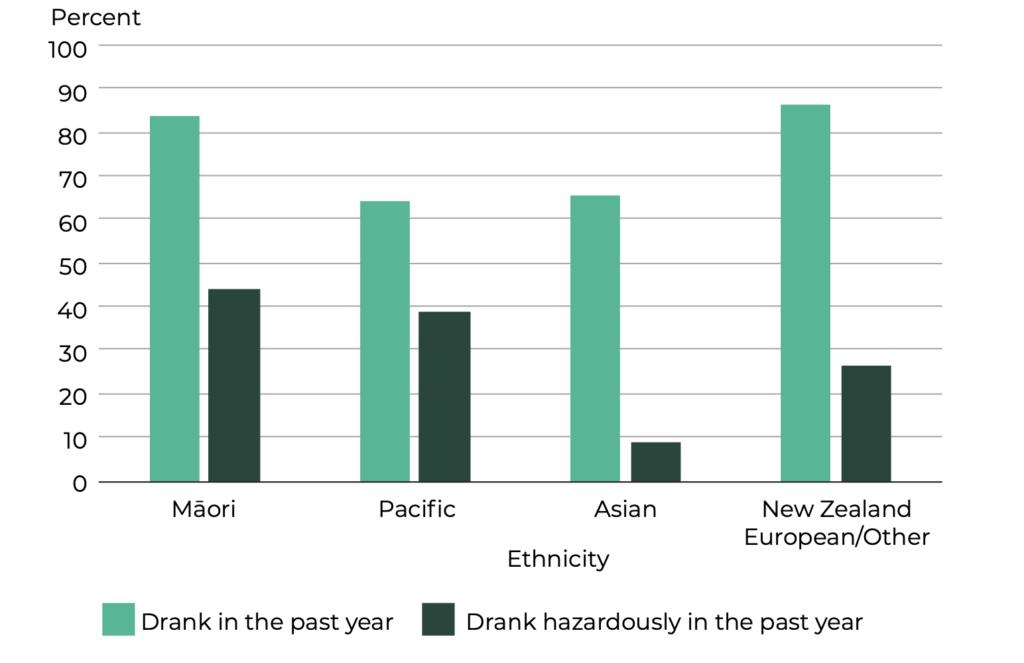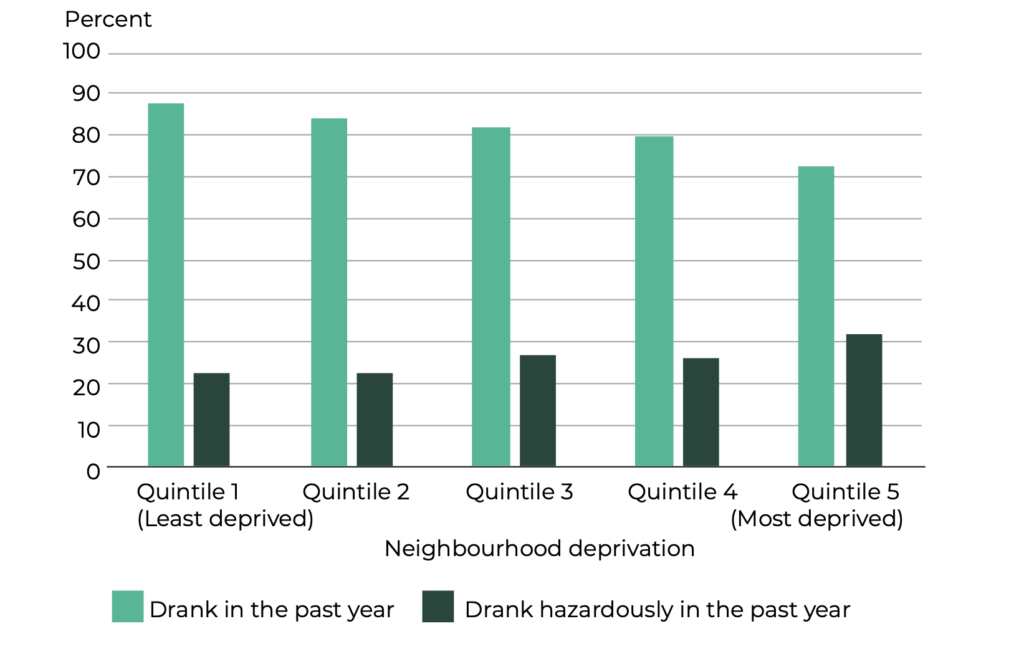Pūrongo Ārai Mate Pukupuku
Cancer Prevention Report
Summary
Cancer is the leading cause of health loss in New Zealand with about 25,000 people diagnosed every year. About 30–50% of cancers globally are preventable. If that proportion is applied to the 26,000 people diagnosed with cancer in New Zealand in 2018, that would mean 7,800 to 13,000 fewer people would have developed cancer that year.
The report specifically addresses preventing cancers related to alcohol in a separate chapter.
Alcohol’s cancer burden in New Zealand
- Alcohol causes many different types of cancer, including two of the most common cancers in New Zealand – bowel cancer and breast cancer.
- Alcohol was the cause of an estimated 950 new cancer cases in New Zealand in 2020, of which,
- 39% were bowel cancer cases, and
- 28% were breast cancer.
- In 2020, alcohol also caused 32% of oral cavity, and pharyngeal cancers,
- 23%of liver and laryngeal cancers,
- 16% of oesophageal cancers,
- 11% of bowel cancers, and
- 7% of breast cancers.
- In 2019, it was estimated that alcohol caused about 6% of all cancer deaths (over 640 deaths).
Alcohol burden in New Zealand
- Most adults (82%) in New Zealand use alcohol.
- Almost two in five adults (37%) in use alcohol above the low-risk alcohol use guidelines.
- New Zealanders use more alcohol each year (10.7 litres per person aged 15 years and older) than both the global average (5.8 litres per person) and the average for high-income countries (10 litres per person).
- In 2019, enough alcohol was available for consumption for every adult in New Zealand to consume two standard units of alcohol per day, which is equivalent to almost two bottles of wine per person each week.
- The volume of alcohol available for consumption has not changed significantly since 2005.
- Furthermore, surveys show that no change has occurred in the prevalence of past-year alcohol users since 2006 or in the prevalence of hazardous and heavy episodic alcohol use since 2015 (when data began to be collected).
The amount of alcohol consumed varies by gender, ethnicity, age and deprivation.
- Using alcohol in the past week was more common among New Zealand Europeans/other, men aged 45–64 years and those living in the least deprived areas.
- Pacific peoples, Asian men and those from high-deprivation areas are less likely to have consumed alcohol in the past year.
- However, Māori and Pacific peoples, those aged 18–24 years and those from the most deprived areas are more likely to use more alcohol than the daily low-risk alcohol use recommendations, and consume alcohol hazardously.
- Although the legal age for purchasing alcohol is 18 years, over half of those aged 15–17 years used alcohol in the past year.
Preventing alcohol related cancers
The report provides four areas of action and seven comprehensive actions on how to prevent alcohol related cancers in New Zealand. These actions are detailed in focus areas in the report.
Summary of options to prevent cancers related to alcohol use:
- Reduce the affordability of alcohol.
- Increase alcohol excise tax.
- Introduce a minimum unit price (a mandatory lowest retail price per standard drink of alcohol).
- Reduce the availability and accessibility of alcohol.
- Decrease the number and density of licensed premises.
- Decrease trading hours – particularly for off-licence outlets.
- Increase the legal purchase age for alcohol from 18 years to 20 years.
- Reduce alcohol advertising, marketing and sponsorship.
- Enact and enforce comprehensive restrictions on volume and content of alcohol advertising and sponsorship across all environments.
- Support health services to reduce harm from alcohol.
- Strengthen screening and brief interventions to reduce alcohol consumption.
Access the full report, here.



